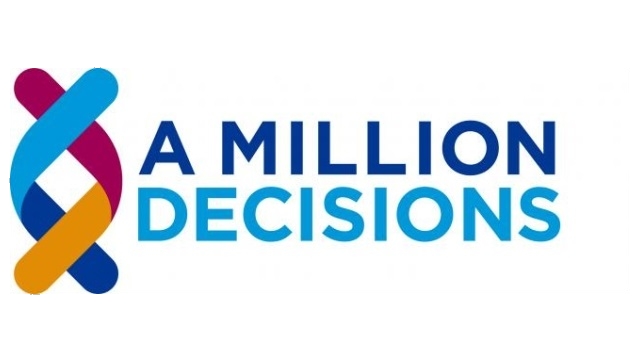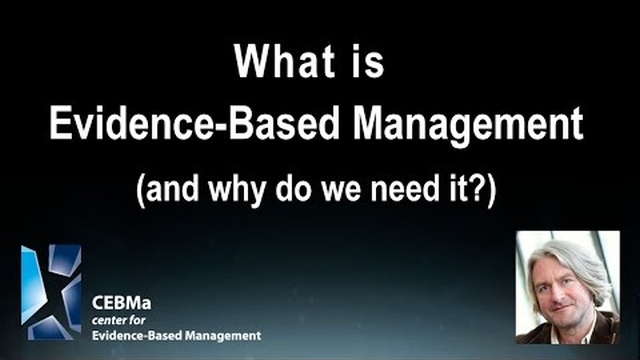
Information literacy and evidence-based knowledge management
This article is part of an ongoing series of articles on evidence-based knowledge management.
As I’ve previously discussed, the knowledge management (KM) community needs to move to a better evidence-based foundation. Evidence-based knowledge management (KM) involves four sources of evidence: the scientific literature, evidence from the organisation, evidence from practitioners, and evidence from stakeholders.
The Center for Evidence-Based Management (CEBMa) advises1 that “When we say ‘evidence’, we basically mean information,” and that there are six steps in evidence-based practice:
Evidence-based practice is about making decisions through the conscientious, explicit and judicious use of the best available evidence from multiple sources by
- Asking: translating a practical issue or problem into an answerable question
- Acquiring: systematically searching for and retrieving the evidence
- Appraising: critically judging the trustworthiness and relevance of the evidence
- Aggregating: weighing and pulling together the evidence
- Applying: incorporating the evidence into the decision-making process
- Assessing: evaluating the outcome of the decision taken
to increase the likelihood of a favorable outcome.
Enhancing information literacy skills in KM
Awareness of the need for better information literacy has grown since the concept first appeared in the 1970s, and in the time since, a number of international and national education initiatives have been established. The primary focus for these initiatives has been schools and universities, with library associations and organisations playing a leading role in their establishment and ongoing development.
Definitions of information literacy have to date reflected this education sector focus, but are now evolving in recognition of the need for all citizens to become information literate. Library and information association CILIP recently published this new high-level definition:
Information literacy is the ability to think critically and make balanced judgements about any information we find and use. It empowers us as citizens to reach and express informed views and to engage fully with society.
Research in the healthcare sector has found2 that improving skills in information literacy can assist with the six steps of evidence-based practice, through teaching professionals “how to frame a … question (information needs identification); identify, access and use relevant and reliable information sources; and critically appraise the evidence (information evaluation).”
A wide range of resources have been produced that can help knowledge managers to develop and enhance these information literacy skills. Even knowledge managers who have been trained in information literacy at school or university can benefit from a refresher, with research showing that3 skills taught at undergraduate level were not retained following graduation. The research, which was also conducted in the healthcare sector, found that “Most participants recalled the training they received but had not retained high-level search skills, and lacked skills in identifying and applying best evidence. There was no apparent link between the type of training given and subsequent skill level.”
A concise and straightforward resource to start with is CILIP’s Research Smarter resource sheet series. An introductory sheet provides advice on how to use the nine sheets of the series. The sheets are published under a Creative Commons license so you can also adapt and use them for your own purposes, for example staff training.
Beyond this, UNESCO has published an Overview of Information Literacy Resources Worldwide4, which includes listings in multiple languages.
Please take the time to review these resources, and consider how you can enhance your evidence-based practice through improved or refreshed skills in information literacy. Consider also how you can encourage and assist your family, friends, and colleagues to do the same.
References:
- Barends, E., Rousseau, D. M., & Briner, R. B. (2014). Evidence-based management: The basic principles. Amsterdam: Center for Evidence-Based Management. ↩
- Majid, S., Chaudhry, A. S., & Zhang, X. (2008). Role of information literacy in effective evidence-based practice. Abrizah Abdullah, et al. (Eds.). ICOLIS 2008, Kuala Lumpur: LISU, FCSIT: 33-40. ↩
- Cullen, R., Clark, M., & Esson, R. (2011). Evidence‐based information‐seeking skills of junior doctors entering the workforce: an evaluation of the impact of information literacy training during pre‐clinical years. Health Information & Libraries Journal, 28(2), 119-129. ↩
- Horton, F. W. (Ed.). (2013). Overview of information literacy resources worldwide. UNESCO. ↩
Also published on Medium.






